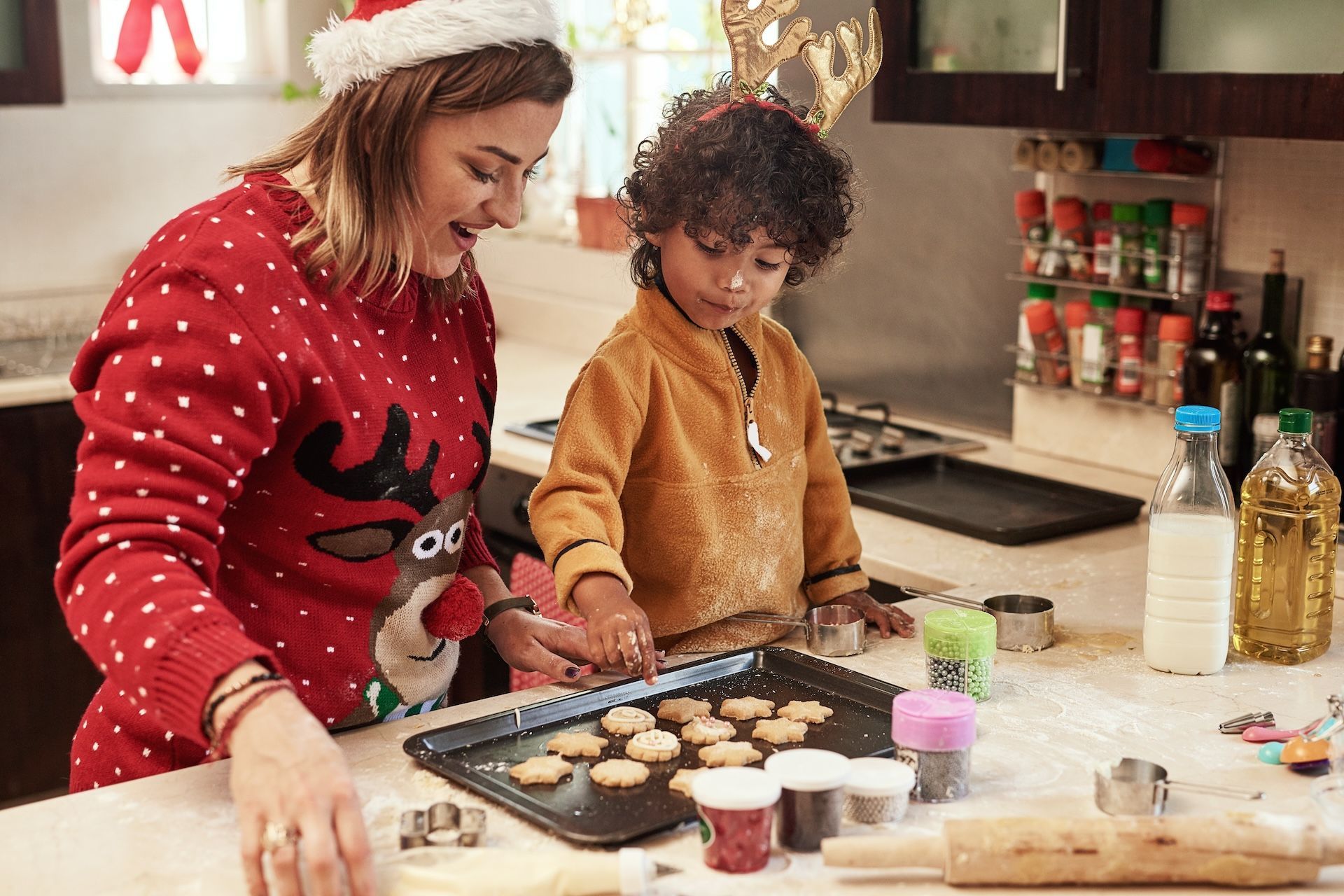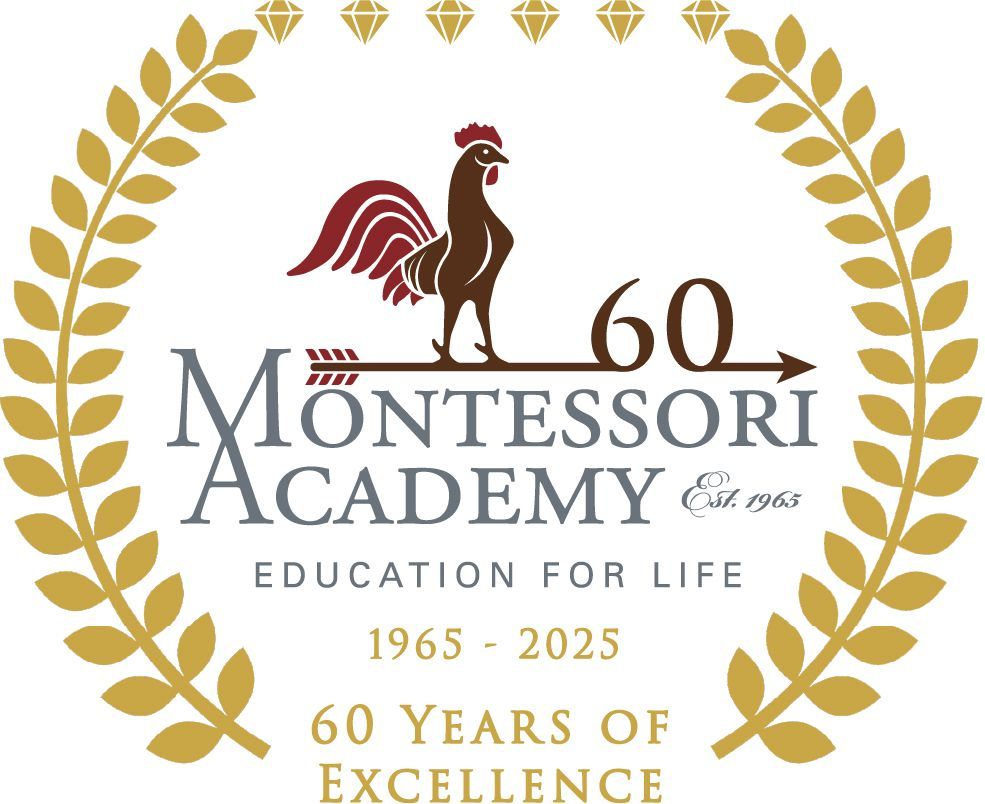
We have seen how children feel more grounded and cooperative when they have a role to play. Thus, whenever possible, it’s helpful to find little (and sometimes big!) ways for children to help with holiday preparations. Children’s active participation helps them develop important life skills and also helps them better adapt to changes in holiday rhythms and routines.
We wanted to share a few ideas on incorporating Montessori principles into holiday celebrations and time with family this holiday season. Above all, we advocate for keeping the holiday season calm and joyful! So, we offer this sprinkling of options during a time when we have a lot going on in our lives and with our families. If even one can help sweeten your time together, fabulous!
Children’s participation can take a variety of forms. Choosing meaningful activities that don’t cause more stress and strain is important. Here are a few of our favorites!
Holiday Decorating
If your family enjoys decorating, consider creating a child-sized decoration station, perhaps with a small tree or table at your child’s height. They can practice hanging ornaments, placing candles, arranging decorations, and generally having a hand in creating their own festive space. Of course, if it feels right, they can also add to the general household decorations!
Gift Wrapping
When preparing gifts for family and friends, consider setting up a simple wrapping station with materials appropriate to your child’s age and abilities. They can help tape, cut paper, add ribbon, decorate tags, or even add colorful scribbles to butcher or white paper. Child-decorated wrapping paper tends to be a family favorite! Plus, the skills involved with wrapping encourage fine motor development! Older children might appreciate step-by-step instructions on measuring the wrapping paper, folding it around a gift, and taping it securely. The youngest ones might appreciate a simple process of placing items into fabric gift bags and tightening the drawstrings.
Baking and Cooking
Allowing children to participate in creating, baking, and decorating holiday treats often provides a huge sense of pride and accomplishment. There are all sorts of simple, manageable steps in this process, from pouring remeasured ingredients into a bowl, to kneading dough, to using cookie cutters, to adding icing or sprinkles. It’s nice to have child-sized tools like small spatulas, whisks, and rolling pins whenever possible.
Setting the Holiday Table
Children can also help create or select a centerpiece for the table. If possible, they can even use natural or found items. A little collecting walk may uncover natural beauties, like pine branches or pinecones. Table-setting is a big part of the Montessori experience, so placing utensils, napkins, and dishes is a natural way to involve children in getting ready for guests or a meal! Children like learning the correct placement of each item, and table setting is a great opportunity to reinforce counting and one-to-one correspondence.
We recommend modeling for younger children how to carry one item at a time, for example, making multiple trips to get one fork and then the next. Once children learn this process, they can be quite independent and thus can stay focused and busy as they go back and forth. If time is of the essence, an adult can bring a tray of forks to the table for children to place at each setting. Older children prefer to find more efficient ways to manage the process!
Making Handmade Gifts or Donation Decisions
We can help our children learn about the importance of giving and gratitude by involving them in decisions about charitable giving or donations. They can help pick out toys or clothes or assist in preparing gift baskets for families in need. We can also support our children in making handmade gifts, which can foster their creativity and thoughtfulness. Depending upon the intricacy of the process, handmade gifts can range from simple crafts like beaded jewelry or friendship bracelets to hand-drawn cards or framed artwork to homemade ornaments or decorations created from clay or salt dough. Ultimately, the goal is to encourage generosity and thoughtfulness while giving children a sense of accomplishment in gift-giving.
Simple, Predictable, and Calm
Young children are especially sensitive to routines and changes to routines, so whatever you choose to do, remember to manage holiday overwhelm by keeping activities simple, maintaining predictable routines, and cultivating a calm space.
By involving children in holiday preparations, we can create meaningful memories and promote independence, responsibility, and creativity. Plus, children appreciate hands-on experiences and real-world activities.
Schedule a tour if you’d like to learn more about how we cultivate these skills at our school!






